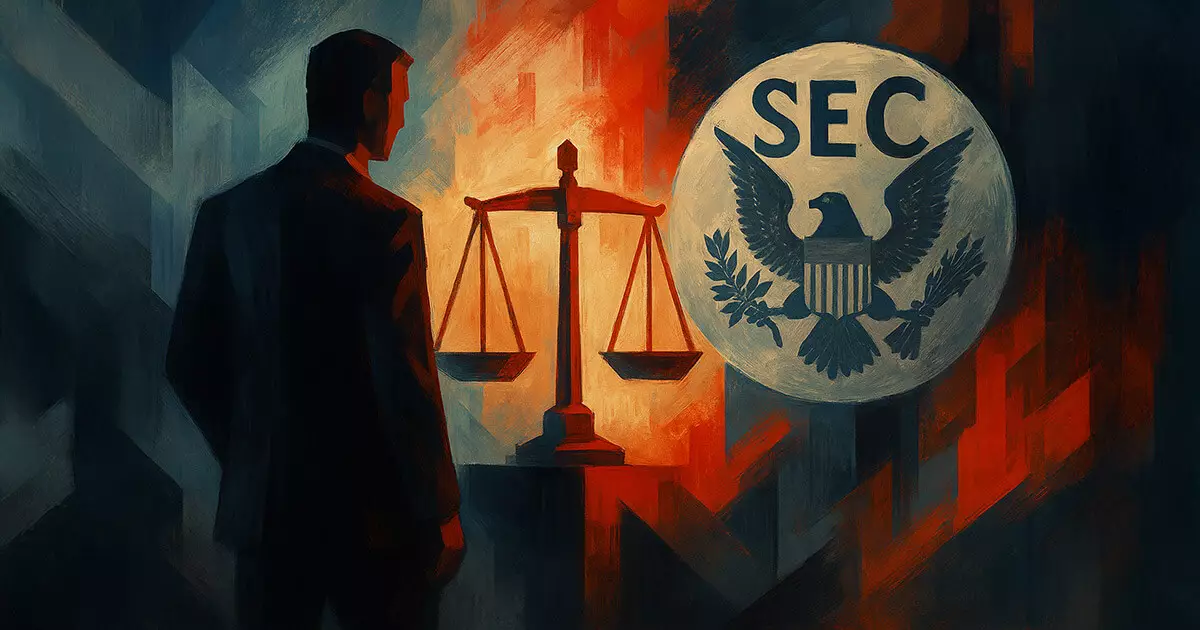In recent years, the landscape of investment opportunities has been tainted by the emergence of deceitful schemes that prey on the hopes and trust of unsuspecting investors. The case of First Liberty Building & Loan, LLC, exemplifies how charisma, political connections, and aggressive marketing can be manipulated to disguise fraudulent practices. Under the guise of offering lucrative short-term loans at enticing interest rates, the company portrayed itself as a conduit for wealth creation. However, beneath this façade lay a meticulously orchestrated Ponzi scheme designed to line the pockets of its leadership while leaving hundreds of small investors in financial ruin.
What makes this scandal particularly alarming is not only the sheer amount of money lost—estimated at over $140 million—but also the time span over which the deception persisted. From 2014 to mid-2025, the firm attracted investors by promising returns up to 18%, a feat that should have raised immediate suspicion given the inherent risks involved with such high yields. Instead of legitimate loan activities, the company was relying on new investor funds to serve as a revolving door for payouts owed to earlier investors, a textbook hallmark of Ponzi operations. As the scheme unraveled in recent months, it became painfully clear that investor confidence had been exploited for personal gain.
The Personal Corruption Embedded in the Business Model
An integral aspect of this scandal is the way leadership—particularly Edwin Brant Frost IV—allegedly misappropriated client funds for personal indulgence. Personal expenses, including luxury vacations, rare coins, and large credit card payments, paint a portrait of greed unbounded by ethical considerations. Over $2.4 million diverted for credit card bills, alongside hundreds of thousands spent on leisure travels and even political donations, expose a leadership disconnected from the financial distress inflicted upon the very individuals who entrusted their savings to the firm.
This abuse of investor trust is not merely a financial breach but a fundamental betrayal of fiduciary duty. When leaders use investor capital for personal pleasure rather than productive enterprise, the integrity of the financial system itself is undermined. Such acts foster skepticism and diminish public confidence, particularly in sectors that rely heavily on small investor participation. Moreover, Frost’s political donations—totaling over half a million dollars—highlight how tightly intertwined financial fraud and political influence have become, blurring the lines between business and partisan strategy.
Implications for Regulation and Political Accountability
The SEC’s intervention signifies the urgent need for vigilance within the regulatory landscape, especially as illegal schemes adapt to exploit community networks and media influence. The case underscores how political figures and those connected to the Republican establishment can become unwitting pawns or, worse, facilitators of corruption. As Frost is a recognized name within Georgia’s conservative circles, the scandal resonates beyond finance, touching on questions of accountability and the influence of political contributions on regulatory oversight.
The collapse of First Liberty has destabilized not only individual investors but also the broader political network that often relies on such connections for support and influence. The involvement of entities controlled by Frost as relief defendants emphasizes how deeply-rooted the misconduct appears to be, involving multiple layers of corporate and personal accounts. The ongoing legal proceedings, including asset freezes and potential penalties, serve as a warning that moral hazard will not be tolerated by authorities.
This case also highlights the importance of a proactive approach in securities regulation. As enforcement officials warn investors against high-yield promises, it becomes clear that education and oversight are critical tools in preventing future episodes of fraud. While some opportunists exploit community trust and political ties, the broader lesson remains: Financial schemes promising guaranteed high returns are often too good to be true. The intersection of political influence and financial misconduct fosters an environment where transparency must be prioritized, especially for retail investors who lack the means to conduct detailed due diligence.
Broader Risks and the Need for Investor Vigilance
The fallout from this scandal invites a reflection on the systemic risks posed by unchecked greed and lax oversight. The ease with which such schemes can infiltrate communities—particularly those with strong political and cultural ties—reminds us that vigilance is necessary at every level of financial engagement. The allure of quick returns often blinds investors to warning signs like overly complex structures, reliance on new investor funds, and questionable use of proceeds.
A central concern is the normalization of risky investments, encouraged by aggressive marketing and affinity fraud targeting specific communities or interest groups. When political or community figures lend their credibility or donations to such schemes, the contagion effect can spread quickly and have devastating consequences. As regulators tighten their grip on illegal schemes, investors must also sharpen their instincts and demand transparency and accountability before committing funds.
The ongoing investigation and legal action are necessary steps toward restoring trust, yet they also serve as stark reminders that the pursuit of wealth must never come at the expense of integrity. The core lesson here is that safeguarding investment capital requires both robust regulation and an informed investor base capable of recognizing the subtle signs of deception amid the promise of prosperity. Only through a combination of vigilant oversight and individual skepticism can future tragedies be prevented.
Note: The above article presents a critical analysis of the case, emphasizing the importance of regulatory vigilance, the risks posed by political and community ties to financial scams, and the need for investor awareness—all within a center-right liberal perspective that values free enterprise but underscores the necessity of responsible oversight.














